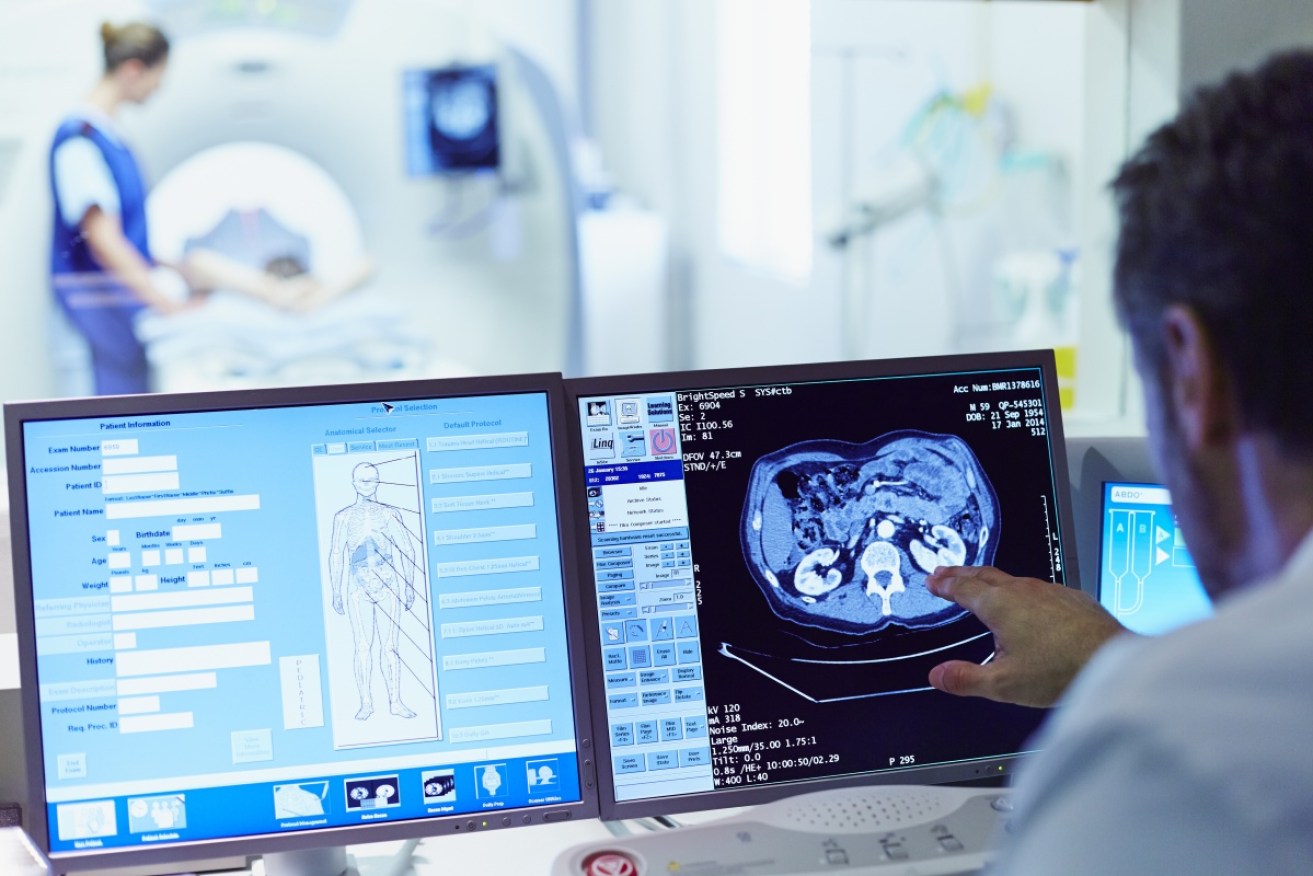CT scans in Australia put on hold because of COVID-19 lockdown in China


CT scans are being reserved for high priority cases because of a shortage of materials. Photo: Getty
GPs have been asked to limit their requests for CT scans, or find alternatives, because of a global shortage of what’s known as ‘iodinated contrast media’.
Contrast materials are essentially special dyes injected intravenously that allow the CT scan to produce a clear image of blood vessels, organs, and the fluid around the spinal cord.
It’s also used to identify the size and shaper of tumours.
The clarity comes from greater contrast. More than half of all CT scans use contrast materials.
The shortage is being driven by the prolonged hard COVID-19 lockdown in Shanghai, which has shut down the factories where most of these materials are produced.
Earlier this month, the Therapeutic Goods Administration (TGA) – in collaboration with the Royal Australian and New Zealand College of Radiologists (RANZCR) – called for “the urgent conservation of stock until the shortage is resolved as current supply is very limited”.
CT scans reserved for urgent cases
Radiologists are calling for computed tomography (CT or CAT) scans requiring IV contrast to be reserved for high-priority patients.
Where possible, according to a report at Australian Doctor, other methods of imaging should be used, “such as patients with pulmonary embolism or gastrointestinal bleeds being investigated with MRI”.
The RANZCR has advised doctors that suspected appendicitis, bowel obstructions and hernias may be investigated with non-contrast CT scans, while investigations of pulmonary nodules of less than 8mm may be deferred.
Iodinated contrast materials, which use iodine as the injected dye, are also used in angiographies that investigate blood vessels in the heart, lungs, brain, kidneys and other parts of the body.
GE Healthcare, the company that supplies most of Australia’s contrast materials, says it is attempting to ramp up production at a secondary factory in Ireland while the Shanghai factory remains closed.
Hospitals in the US and Europe have also warned doctors to conserve supplies where possible.
In a message to consumers, the TGA advises: “If you or someone you provide care for has been referred for a scan, your referring medical practitioner may ask you to defer imaging. If you have any concerns, please contact your referring medical practitioner.”
GE Healthcare says it expects to resume normal supply in mid-June.








